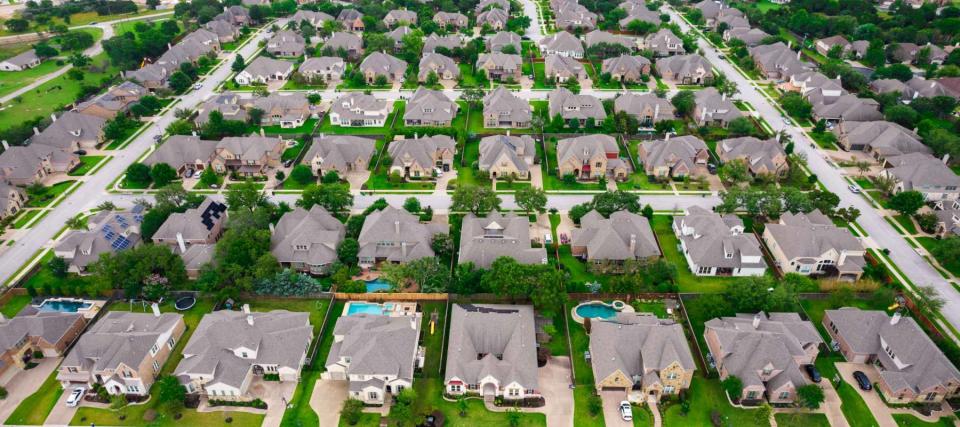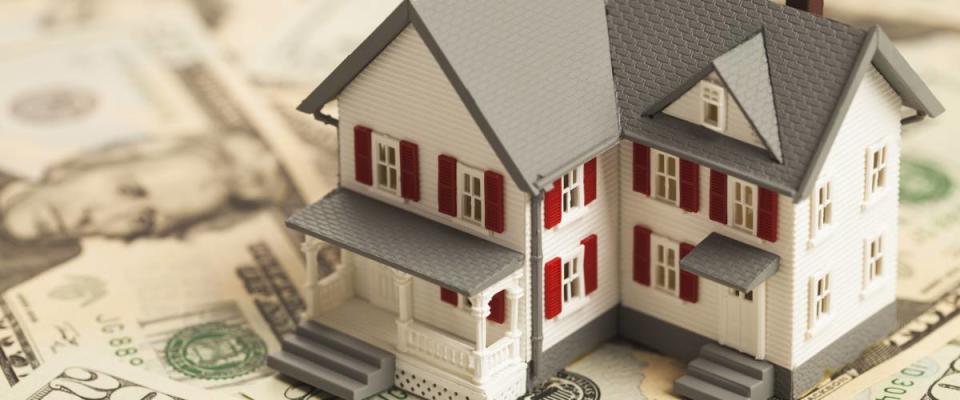US homeowners clueless about how much a refinance can save, survey says

Even after a year and a half of historically low mortgage rates driven down by the pandemic, most U.S. homeowners don't have a good understanding of how refinancing would save them money, a new MoneyWise survey finds.
An overwhelming majority wouldn't refi to save $100 a month, though that's enough to provide tens of thousands of dollars in savings over time. And very few could correctly identify the annual benefit from refinancing a 30-year, $400,000 mortgage from 3.75% down to 2.75%.
Despite interest rates that remain close to all-time lows, little more than half of homeowners have even considered refinancing their mortgages, according to the poll conducted for MoneyWise by YouGov.
"The results of the survey are honestly a shame," says Brian Zitin, CEO of the home valuations technology provider Reggora.
Most wouldn't refinance to save $100 a month

Sure, the refi process can seem complicated and confusing, especially if you haven't been through it before. But the survey found many homeowners don't have a grasp of something much simpler: how savings can add up over the long run.
When asked how much they would need to save each month for a refinance to be worthwhile, 29% of homeowners said $250, while another 29% said it would take $500 in monthly savings to make them consider refinancing.
Just 11% said monthly savings of $100 would be enough to convince them to refi. (All percentages are drawn from survey respondents who currently have mortgages.)
Question: How much would you need to save each month in order to feel that a mortgage refinance would be worthwhile?
$100: 11%.
$250: 29%.
$500: 29%.
$1,000: 13%.
Don't know: 17%.
That kind of thinking can be shortsighted. Let’s say you save "only" $100 a month by refinancing. That’s still an extra $1,200 in your pocket every year you’re in your home and paying down your new mortgage. After five years, you’ll have saved $6,000. After 10, you’ll have saved $12,000.
That’s money that can be grown through investing, used to pay down other debts or put toward a child’s education. And it all starts by saving a little bit every month on your mortgage.
Homeowners flunk a refi math question

Another survey question wanted to find out whether homeowners could identify the potential monthly savings from refinancing a 30-year, $400,000 mortgage from 3.75% down to 2.75%.
Rates were averaging around 3.75% at the beginning of 2020, before COVID started squeezing the U.S. economy. But today, it's easy to find 30-year mortgages at 2.75% or lower.
A mortgage calculator will show you that a loan taken out in early 2020 with a rate of 3.75% would have a monthly principal and interest payment of $1,852. By comparison, a new loan today at 2.75% would cost you $1,633 a month.
The refinance would save you $219 each month, or $2,628 per year.
The survey asked homeowners to pick a rough estimate of the annual savings. Just 13% correctly selected $2,600, while 21% thought they'd save $1,600 each year, and 15% chose $3,600.
Question: If you had a mortgage on a $400,000 home and could cut your interest rate from 3.75% to 2.75% by refinancing, roughly how much would you save each year?
$600: 12%.
$1,600: 21%.
$2,600: 13%.
$3,600: 15%.
Don't know: 39%.
Many haven't given refinancing much thought

Maybe the most eye-opening finding from the survey was the share of homeowners who haven’t even considered refinancing their mortgages, despite mortgage rates falling and remaining low since the beginning of the pandemic.
Almost half the homeowners polled, 44%, said they have never thought about a refi.
Question: Have you ever considered refinancing your mortgage?
Yes: 56%.
No: 44%.
The people answering "no" pointed to a variety of reasons. Some felt refinancing was too complicated (13%) or too expensive (14%). Another 10% said they didn't plan to stay in their homes much longer, while 11% said they were waiting for interest rates to fall even further before they'd pull the trigger.
It’s hard to argue with most of those justifications. For example, if you’re planning to sell your property or move, a refi probably doesn’t make much sense.
But those waiting for mortgage rates to fall again could be playing a losing game. Though COVID infections have surged to levels not seen since January, no one is expecting the response will be the kind of economic shutdown that would send rates into another significant slide.
Question: Which, if any, of the following reasons explains the PRIMARY reason why you did not consider refinancing your mortgage?
It's too complicated: 13%.
It's too expensive: 14%.
I don't plan to stay in the home much longer: 10%.
I'm waiting for lower interest rates: 11%.
Other: 19%.
None of these: 33%.
Expert: '100%' should be considering a refi

The fact that only 56% of the homeowners surveyed had even considered refinancing jumped out at Zitin, of Reggora.
"100% of people should be at least considering refinancing with current market conditions,” he says. "The money people would save is probably meaningful enough to help households, yet the mortgage industry hasn't done a good enough job bringing this awareness to the public."
The survey results seemed far from surprising to Pat Stone, executive chairman and founder of mortgage service provider Williston Financial Group.
“I have seen this sort of polling before, and the truth is most homeowners have not done enough purchases or refinances to be comfortable and knowledgeable about the process," Stone says.
Phil Shoemaker, president of originations at Home Point Financial, says younger homeowners unsure about their futures may be driving the lack of interest in refinances.
"For young families that are in starter homes and plan to upsize in the relatively near future, the potential monthly savings might not move the needle for them because they don’t know for certain that they’ll remain in the home long enough to break even on closing costs," Shoemaker says.
The nationwide average closing costs on a refi are about $3,400, says the research firm ClosingCorp.
How to maximize refinance savings

Getting the most out of a mortgage refinance can sometimes require a little work on your part. But just a little.
The best mortgage rates tend to go to borrowers with the strongest credit. If you take a quick, free look at your credit score, you can find out where it lands on the damaged/decent/excellent spectrum. That’ll give you an opportunity to do a little rehab on your score before you apply to a lender.
If you’ve accrued a lot of nagging, high-interest debt, lenders will question your ability to stay on top of your mortgage payments. Rolling those balances into a single, lower-interest debt consolidation loan can cut the overall cost of your debt, shorten the time it takes to pay it off and improve your cash flow.
When it’s finally time to apply for your refinance loan, gather and compare mortgage offers from at least five lenders. That’ll help you get the best mortgage for your budget, and set yourself up for long-term success as a homeowner.
Survey methodology
The survey was conducted using an online interview administered to members of the YouGov Plc panel of individuals who have agreed to take part in surveys. Emails were sent to panelists selected at random from the base sample. The total sample size was 1,182 adults. The survey was conducted Aug. 25-26, 2021, and was carried out online. The sample included 560 participants who currently have mortgages.
This article provides information only and should not be construed as advice. It is provided without warranty of any kind.
